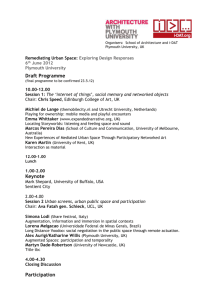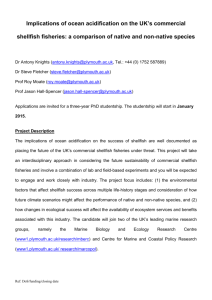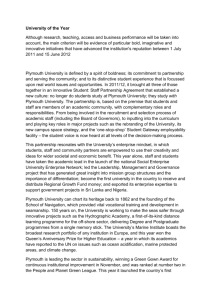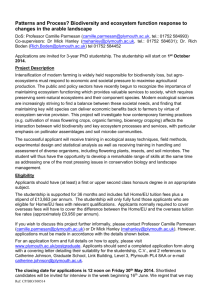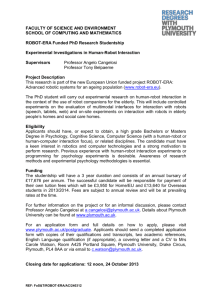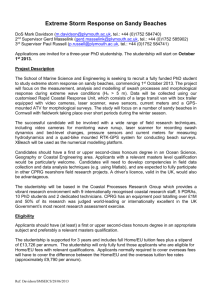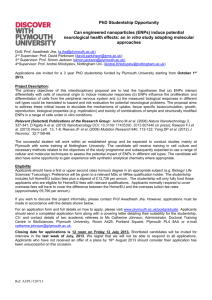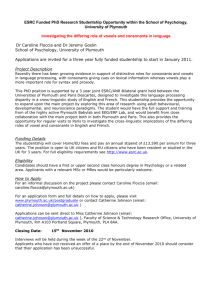Defra Funded PhD Research Studentship
advertisement
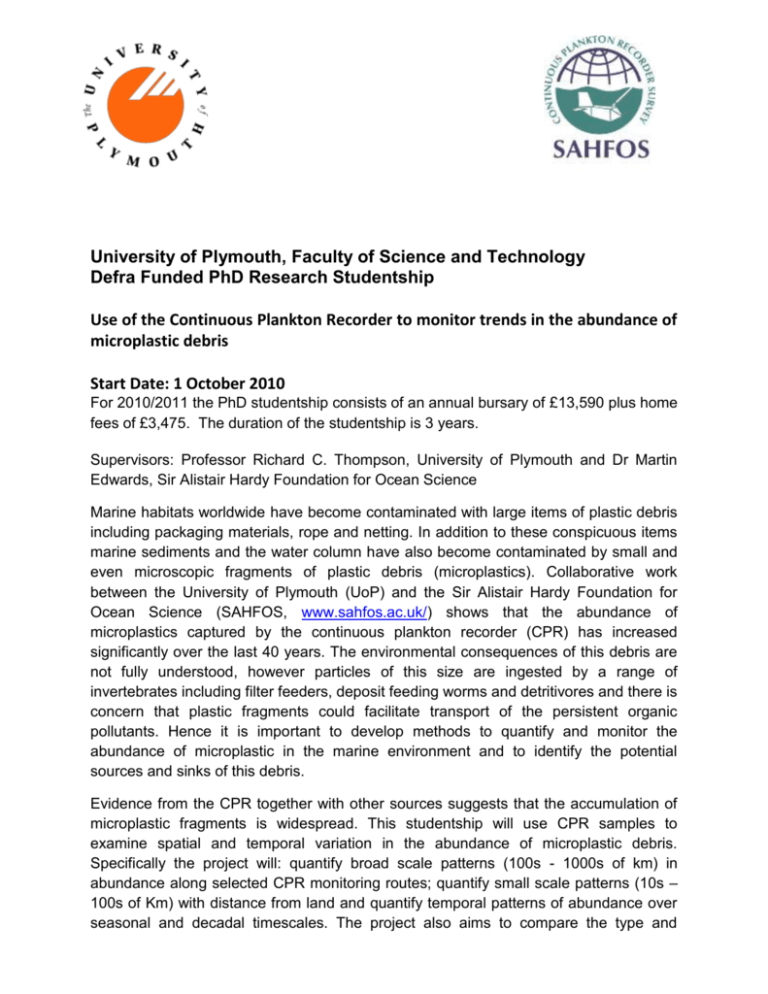
University of Plymouth, Faculty of Science and Technology Defra Funded PhD Research Studentship Use of the Continuous Plankton Recorder to monitor trends in the abundance of microplastic debris Start Date: 1 October 2010 For 2010/2011 the PhD studentship consists of an annual bursary of £13,590 plus home fees of £3,475. The duration of the studentship is 3 years. Supervisors: Professor Richard C. Thompson, University of Plymouth and Dr Martin Edwards, Sir Alistair Hardy Foundation for Ocean Science Marine habitats worldwide have become contaminated with large items of plastic debris including packaging materials, rope and netting. In addition to these conspicuous items marine sediments and the water column have also become contaminated by small and even microscopic fragments of plastic debris (microplastics). Collaborative work between the University of Plymouth (UoP) and the Sir Alistair Hardy Foundation for Ocean Science (SAHFOS, www.sahfos.ac.uk/) shows that the abundance of microplastics captured by the continuous plankton recorder (CPR) has increased significantly over the last 40 years. The environmental consequences of this debris are not fully understood, however particles of this size are ingested by a range of invertebrates including filter feeders, deposit feeding worms and detritivores and there is concern that plastic fragments could facilitate transport of the persistent organic pollutants. Hence it is important to develop methods to quantify and monitor the abundance of microplastic in the marine environment and to identify the potential sources and sinks of this debris. Evidence from the CPR together with other sources suggests that the accumulation of microplastic fragments is widespread. This studentship will use CPR samples to examine spatial and temporal variation in the abundance of microplastic debris. Specifically the project will: quantify broad scale patterns (100s - 1000s of km) in abundance along selected CPR monitoring routes; quantify small scale patterns (10s – 100s of Km) with distance from land and quantify temporal patterns of abundance over seasonal and decadal timescales. The project also aims to compare the type and quantity of plastic captured using CPR with other approaches such as manta trawls and bongo nets. Work will involve examination of CPR samples collected during the studentship together with material archived by SAHFOS over the last 50 years. The student will be based in the Marine Biology and Ecology Research Centre (www.research.plymouth.ac.uk/mberc/) at the University of Plymouth and will work between main campus and SHAFOS (20 minute walk). The student will receive training in the use of Fourier Transform Infra-Red spectroscopy. In addition the student will complete a postgraduate induction course, and modules in Research Skills and Research methods and Laboratory-based Teaching Methods. For further information about the project, please contact Richard Thompson (rcthompson@plymouth.ac.uk). Applicants should send a completed application form (http://www.plymouth.ac.uk/pghowtoapply), CV, and a letter detailing their suitability for the post as well as contact details of two academic referees to Mrs C Watson, Faculty of Science and Technology, Plymouth PL4 8AA or e-mail c.watson@plymouth.ac.uk Closing date for applications: Tuesday 8th June 2010 Interviews will be held on Thursday 1st July 2010 Applicants who have not received an offer of a place by the end of end of August 2010 should consider that their application has been unsuccessful.
